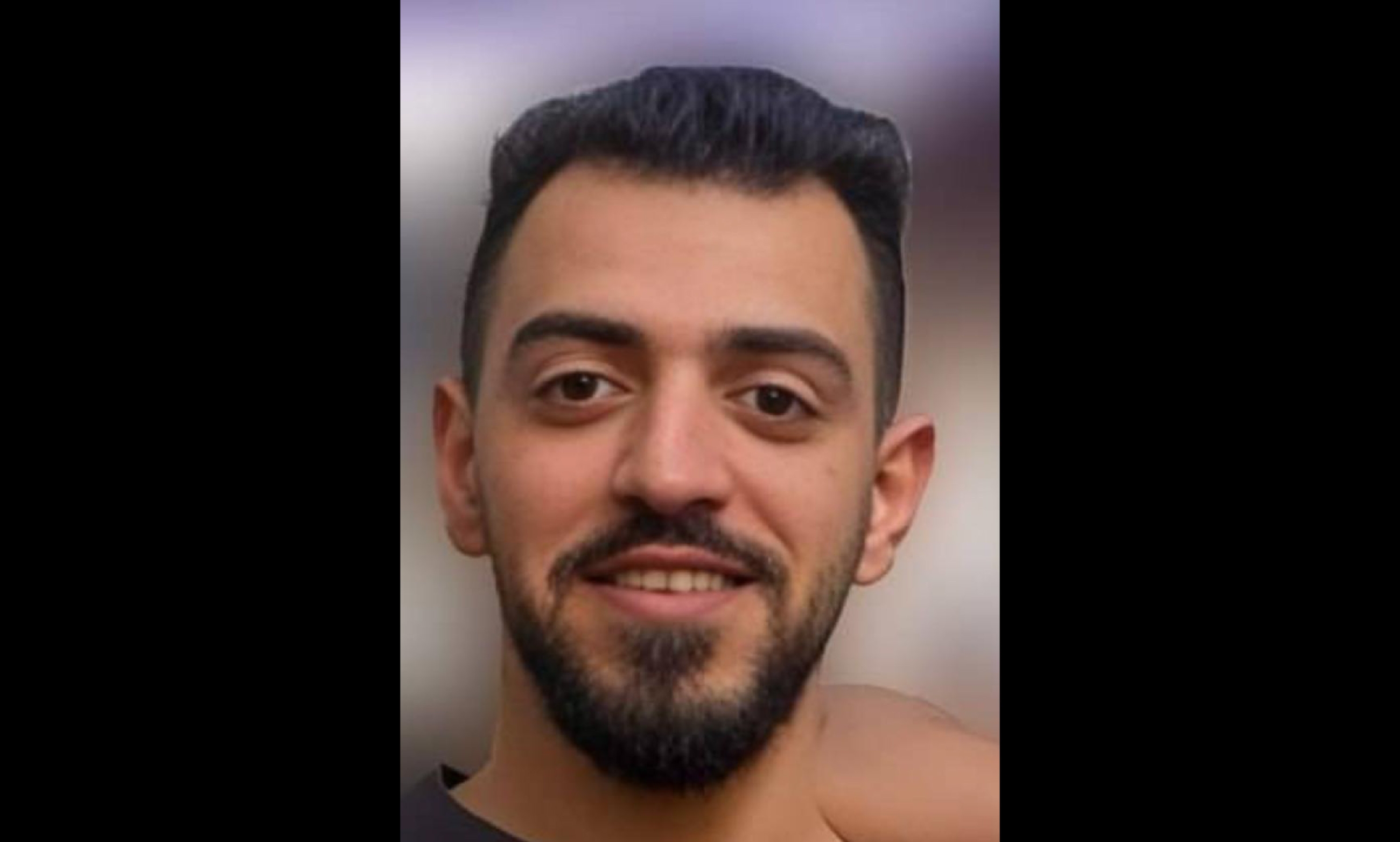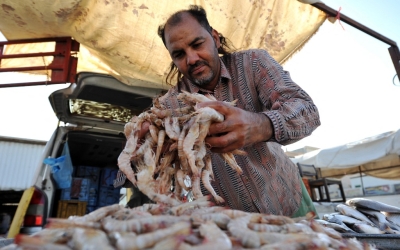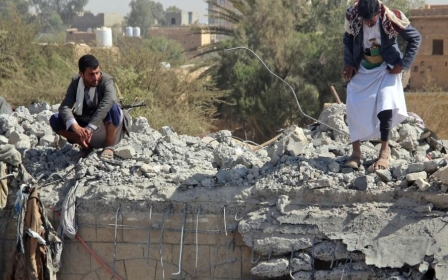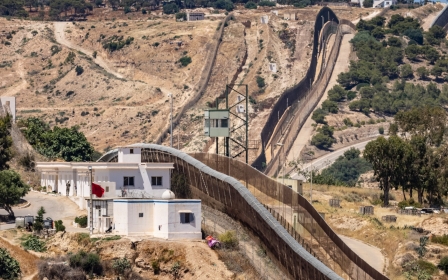Brother of Saudi man pleads with Morocco to stop his extradition

The brother of a Saudi national being held in Morocco has called on authorities in Rabat to shield him from extradition over concerns for his safety if he is returned to the kingdom.
Rights groups have warned that Hassan al-Rabea, who was arrested on 14 January at Marrakesh Airport, is at “serious risk” of arbitrary detention, torture and an unfair trial in his homeland.
Rabea, 26, was detained on an arrest warrant issued at the request of Saudi authorities who are seeking to try him for leaving the kingdom “irregularly” with the help of “terrorists”.
'They were starting on Hassan so he took the decision that he had to leave'
- Ahmed al-Rabea, Hassan's brother
But his brother, Ahmed al-Rabea, and rights advocates told Middle East Eye that Hassan is only the latest family member to be punished for anti-government protests in Qatif that relatives participated in years ago.
Ahmed’s eldest brother, Ali, is in prison facing the death sentence for alleged terrorism. Ahmed says the “terrorist” whom Ali is alleged to have helped is Munir, another al-Rabea brother who is wanted for protesting in 2011.
New MEE newsletter: Jerusalem Dispatch
Sign up to get the latest insights and analysis on Israel-Palestine, alongside Turkey Unpacked and other MEE newsletters
Two cousins, Hussein and Ahmed, were among 37 men executed on 23 April 2019 following what rights groups have said were unfair trials for various charges, including protest-related and terrorism offences.
The family, who are members of Saudi’s Shia minority, live in Awamiya, a town in the Qatif province that has been the site of protests over government discrimination against the community.
“This is how they do it. First, they finished with all of the town…the next step is who are the friends. The third is family. This is the process,” Ahmed told MEE from Canada where he lives.
“They were starting on Hassan so he took the decision that he had to leave.”
But now Ahmed said his brother, whom he spoke with this past week from a prison in Morocco, is terrified that he will be sent back.
Their fears are heightened because of the case of Osama al-Hasani, a Saudi-Australian national, who was deported from Morocco to Saudi Arabia in the middle of the night on 13 March 2021.
Hasani had been cleared of the criminal charges used to seek his extradition. His family reportedly believe he was sought over his political views.
“He is really scared,” said Ahmed. “You can tell that he’s really worried because every question [during our call] was, ‘Brother, do you think Morocco is going to send me there?’”
Nine human rights groups have called on the Moroccan government to release Hassan al-Rabea. “The forced return of Hassan al-Rabea to Saudi Arabia would endanger his life, freedom and safety,” they wrote in an open letter released last week.
Moroccan authorities and Saudi Arabia’s Ministry of Foreign Affairs did not respond to requests for comment.
'Hassan is a kid'
After finishing high school in 2014, Hassan joined his brother, Ahmed, in Canada where he studied English for four years. He wanted to stay longer, but couldn’t afford further studies and returned to the kingdom in 2018 to support their family, Ahmed said.
While some of their family members, including their brother, Munir, had participated in anti-government protests in 2011, Ahmed said Hassan had not. “Hassan is a kid,” he said.
But two years after Hassan returned, Ahmed said Saudi authorities learned that Munir - whom they thought was still inside Saudi Arabia - had actually left the kingdom years earlier, and pressure grew on the family.
In February 2021, Saudi State Security raided the Rabea home in Awamiya and arrested Hassan and his brothers, Ali and Hussein, rights groups say. Hussein and Hassan were released after a day’s detention, but Ali was held incommunicado for eight months.
Authorities charged Ali with terrorism-related crimes - which Ahmed contends were allegations that he had helped Munir - and he was sentenced to death in November 2022.
After his arrest, Hassan decided he needed to leave the country and took a flight in late 2021 from King Fahd International Airport in Dammam to Doha and then on to Ukraine. “He didn’t leave illegally,” Ahmed said.
From Ukraine, Hassan tried to complete paperwork on a visa application to return to Canada, but needed bank statements that he could only obtain by going back to Saudi Arabia, Ahmed said.
So he stayed on in Ukraine, until it became clear that Russia would invade and Ahmed told Hassan to leave quickly. He then went to Indonesia, then Oman, and finally arrived in Morocco in the summer of 2022.
By then, Hassan’s travels were taking their toll.
“He missed his family,” Ahmed said. He wanted to get off the road and was thinking Turkey, where he was headed on 14 January, might work.
But when he was stopped at the airport in Morocco and saw official papers from Saudi Arabia, he texted a friend: “I don’t know what’s going on. I think I’m going to be in trouble.”
No appeal option
Three months ago, the Arab Interior Ministers Council, an arm of the Arab League that coordinates law enforcement between countries, issued a request for Hassan’s arrest at Saudi Arabia’s direction.
Alexis Thiry, legal advisor for MENA Rights Group who has seen the warrant, said it is the second extradition case in recent months to involve the council, occasionally referred to as the Arab Interpol.
'Right now, I don’t have any other option. I have to do it. I just said game over. I’m not going to zip my mouth'
- Ahmed al-Rabea
In November, Sherif Osman, an Egyptian-American dual national who had been critical of the Egyptian government, was detained in the United Arab Emirates and faced extradition to Egypt based on a request from the council. He was freed in December.
Thiry said he is concerned that members of the Arab League may be using the council to avoid the scrutiny that would come with notices issued by the Lyon-based Interpol at their request.
Ahmed al-Rabea said he’s spent the past days speaking out on social media and pleading with the Canadian government, among others, to intervene for his brothers.
“Right now, I don’t have any other option. I have to do it. I just said game over. I’m not going to zip my mouth,” he said.
Morocco’s Court of Cassation, which will rule on Hassan’s case, is scheduled to convene on Wednesday. The ruling cannot be appealed.
Middle East Eye delivers independent and unrivalled coverage and analysis of the Middle East, North Africa and beyond. To learn more about republishing this content and the associated fees, please fill out this form. More about MEE can be found here.






